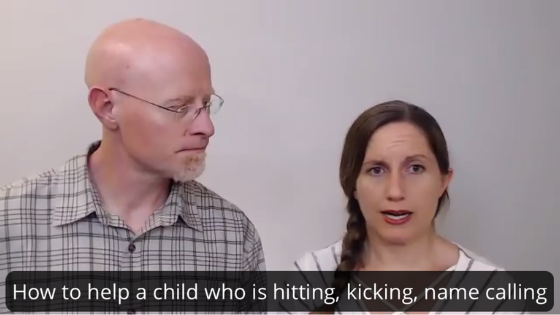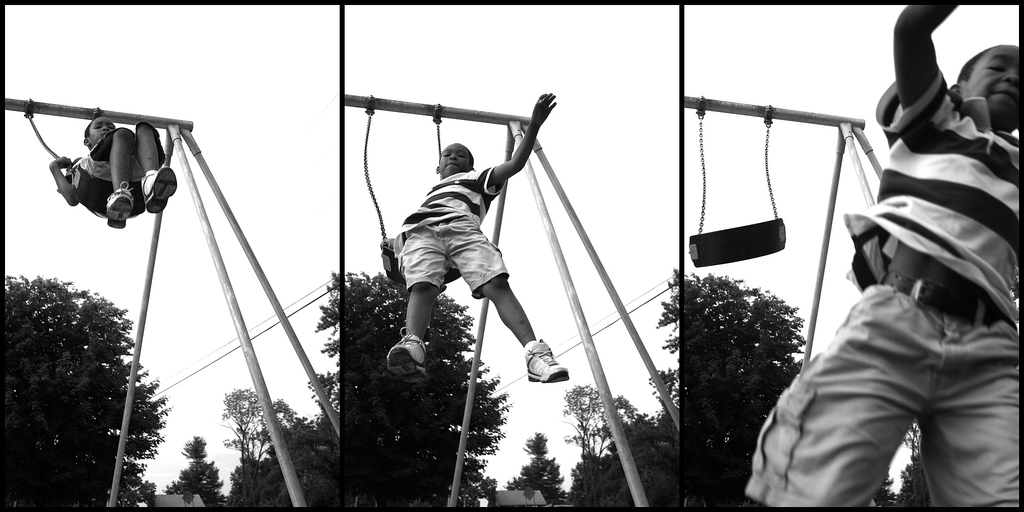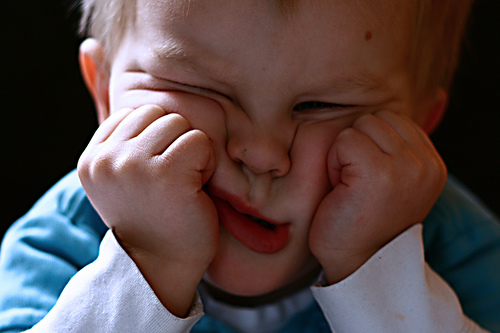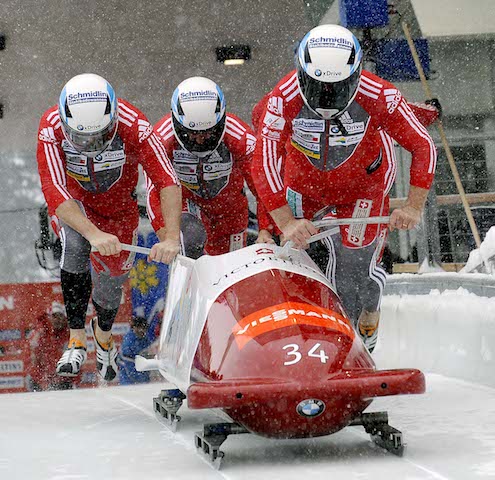During a recent Q & A call, Natalia described a situation with her son…
“At school, some kids hurt him accidentally, then he called them names. I’ve already tried telling him to ignore the situation, use breathing, or use his sensory box to calm down. After he calms down he understands the situation but it seems like he’s suppressing his feelings. What else can I do? How do I help him genuinely want to apologize?”
There are a lot of different layers to this situation, but we think the solution comes from one simple strategy… that we demonstrate for you!
Here’s a quick video of the solution.
What we talk about in the video works for children of any age. This one strategy is the quickest way we know of to help kids calm down, stop hitting and name calling, and build emotional and social intelligence.
And it’s the only thing we know of that helps kids genuinely want to apologize… although it may sound a little counterintuitive at first! :)










Marcia, exactly! I love what you’ve said here. We can make guesses about kids feelings and needs. And through the conversation we can help them see if their actions produced the long term results that they really want.
Thanks, this makes sense to me. One big question: how to manage this when it is between siblings and I’m the only adult? My older child often takes out other frustrations on her little sister. I want to process this with the older one, but it seems so unfair not to first spend time comforting the “victim,” and also then having her overhear that her older sister had “a very good reason’ for being aggressive doesn’t seem right either. Thanks for any tips.
Yes, Kate, it’s more complicated with multiple kids. Sometimes I put one arm around each of them and give them both empathy at the same time. I talk about what I see “There are 2 kids here and only one tricycle.” Generally I try to go first to the child who appears to be in more pain.
When you ask one child about their “good reason” for behaving a certain way, then you’ll want to also ask the other child for their “good reason” for behaving the way they did. Even if one is a “victim” you can ask “what was your reason for not hitting, even when your sister hit you?” The child might say that they didn’t want to hit because hitting hurts, etc.
Very on point guys, have been struggling with my Add 7 yrs old son with his flight/ fight response,and aggressive behaviours at school and we’re working on it with his therapists, now he’s at an age he can start recognising the signs before in his body how he feels and work on self regulations, at school they use sensory breaks cards. I totally agree with the not telling them what not to do but focus on what they should do and show them, I can do role play with my son to help him understand better
as he’s lacking also on social skills compared to his peers
For many kids, your ideas are awesome. My 2E child is different. He picks up right away that I have an agenda to empathize with him and then encourage him to think more. He will immediately tell me to stop what I am doing, and he will get explosive if I don’t. The good news is that he does tend to do some self correction, but unfortunately, he continues to regularly rely on name calling and aggression when he is in a social situation in which he is feeling a loss of control (like another child taking the lead in play). Any thoughts?
Janine, what we are trying to describe in the video is about letting go our agenda, letting go of our solutions to our kid’s problems, but instead to see the world as your child sees it and be a consultant for them. Maybe you could try saying something like this… “I’d like to talk to you for a bit is now a good time?” “I noticed at the park yesterday that when Joe said he was the boss of the game you called him a [name].” “I’m guessing you wanted to be the boss of the game, hm?” “Tell me about that.” “Do you have ideas about how you’d like to handle those situations in the future?” “Do you want to hear some of my ideas?” Hope that helps!
Thank you for giving a strategy to help parents get to the place of empathy for our kids even when they are doing a behavior we don’t like! Love it! simple. “Ah, that makes sense…tell me more!” Thank you so much for showing us a way through to have empathy and to keep the dialogue going. I love the antidote for “wrong” thinking isn’t “right” thinking but more thinking! Wow. I wonder about adding needs in kid friendly language – you felt hurt maybe? and you wanted to protect yourself from this happening again, to be seen as strong? maybe to be understood how much that hurts (the need underneath retaliating). You were really mad and you reacted out of wanting to feel safe again?” Lots of feelings and need guesses. And what I love is even if he says “Yes, it got my goal – to hurt back” you can ask “Ah and does that help you feel safer, more protected?” and/or “What’s the cost of this?” (I got in trouble, I don’t have friends, people think I’m a bully…”) It seems often the kids will start to guess on their own like you said, what needs the other kid was trying to meet or needs that didn’t get met, they become a human kid again, rather than an enemy.